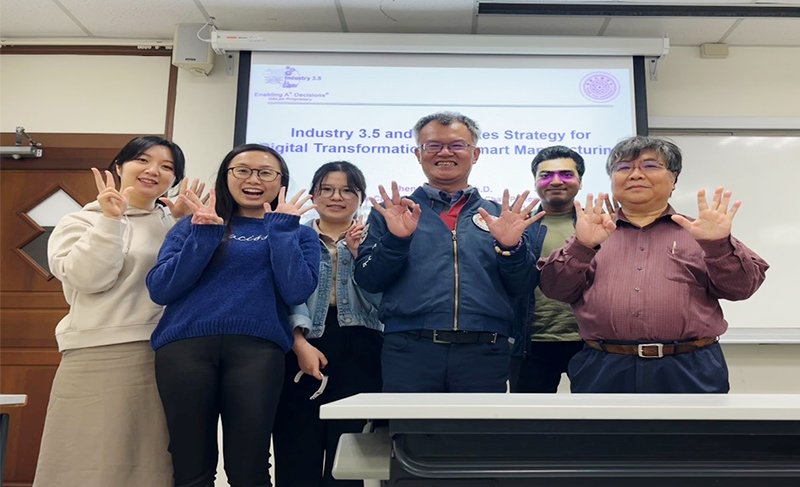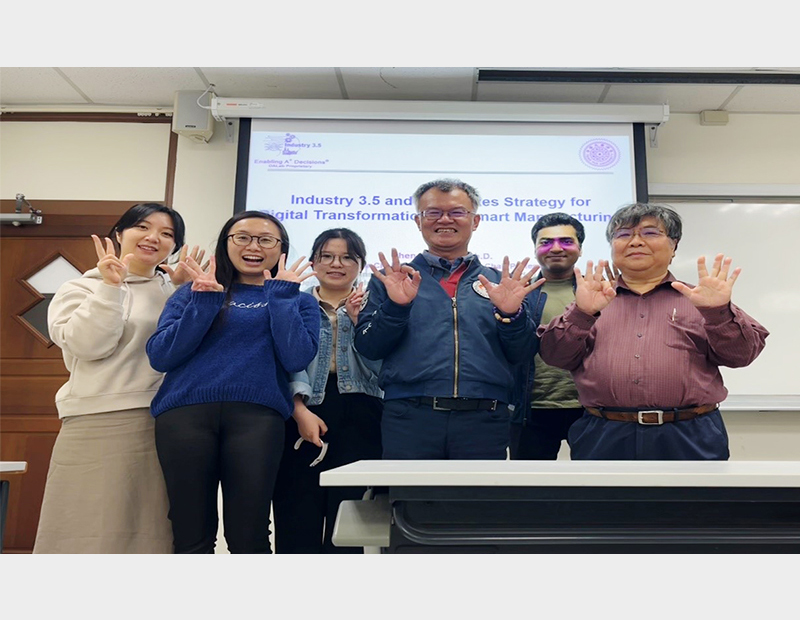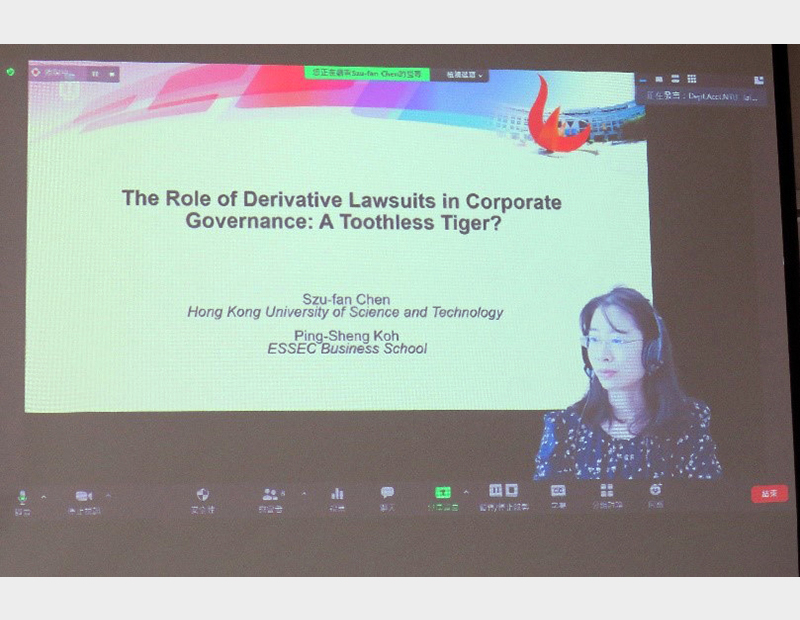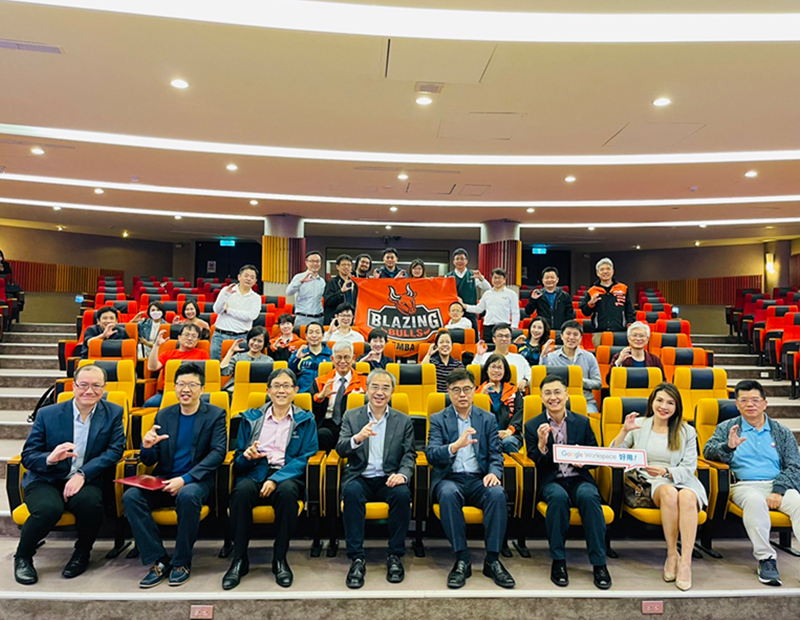Industry 3.5 and Blue Lakes Strategy for Digital Transformation and Smart Manufacturing
工商管理學系暨商學研究所
撰文者/商研所博士班 蘇亞馬
We are thankful to Prof. Wun-Hwa Chen for inviting Prof. Chen-Fu Chien from National Tsing Hua University (NTHU) for such an excellent seminar. The focus of this seminar was on the application of management tools in the semiconductor manufacturing industries in emerging economies. The main content of this seminar is highlighted below.

Prof. Chien begins this seminar with a story dating back to 1996, when he returned to Taiwan from the USA. Peter Drucker’s ( father of management) autobiography got published the same year. This autobiography was unique because it was not filled with personal agendas. However, it was a collection of short stories he had gathered through experience throughout his lifetime. Drucker’s autobiography motivates Prof. Chien to collaborate with people with various academic backgrounds working in industries, and as the semiconductor industry boomed, he got several opportunities to work with leading semiconductor manufacturing companies in Taiwan. Moreover, the ministry of science and technology (MOST) appointed Prof. Chien to supervise one project related to small and medium-sized enterprises (SMEs).
Going ahead, Prof. Chien discusses the evolution of the industrial revolution in four stages, beginning from the era of steam-powered engines to industry 4.0. Then he awes the audience with an interesting argument – If we are talking about so-called Industry 4.0, then what happened to the previous three? All those are not the same as there are enabling technologies that assist in transitioning from different industrial revolution generations, and it always happens through a smooth transition, not like a quantum jump. Moreover, this phenomenon was explained through the Ford motor example.
Germany released the concept of Industry 4.0 in 2011. One of the major highlights of that event was the recovery of manufacturing share from emerging countries like Chine, South Korea, Taiwan, India, etc. (emerging countries make up to 40% of the global manufacturing share). So it is evident for emerging economies to have their own strategies to deal with Industry 4.0 because they have different infrastructure and needs. When conscious stricken government officials in Taiwan asked Prof. Chien about industry 4.0, he recommended that Taiwan should go for industry 3.5 as Taiwan was still not ready for industry 4.0 because of the limitations mentioned above (infrastructures and needs). The concept of industry 3.5 can also find support from telecommunication industries; when leading players were transitioning from 3G to 4G, few follower firms tried to capitalize on the potential of existing 3G network infrastructure through software upgrades.
Furthermore, Prof. Chien enlightens us with the concept of Blue Lakes. Blue lakes refer to the small market segments instead of a vast market (blue ocean). The challenges associated with a vast market are related to gruesome market competition as many players enter that market and profit margin decreases. So small companies need to focus on multiple small market segments and try to push the market boundaries and capitalize on the market share once other players enter one or more market segments (blue lakes). Moreover, Prof. Chien illustrated many of his industrial research conducted with Taiwan high tech and SMEs firms.
Thanks again to Prof. Chen-Fu Chien for such an inspiring talk on Industry 3.5 and Bluelakes strategy for digital transformation and smart manufacturing and for bringing a lot of thoughts and discussions into the seminar. Moreover, this seminar motivated every attendee such that it will remain with them perhaps throughout their carrier as researchers and practitioners. We would also like to thank Prof. Wun-Hwa Chen again for arranging this seminar for our doctoral students and inviting eloquent speakers from industry as well as academia.



